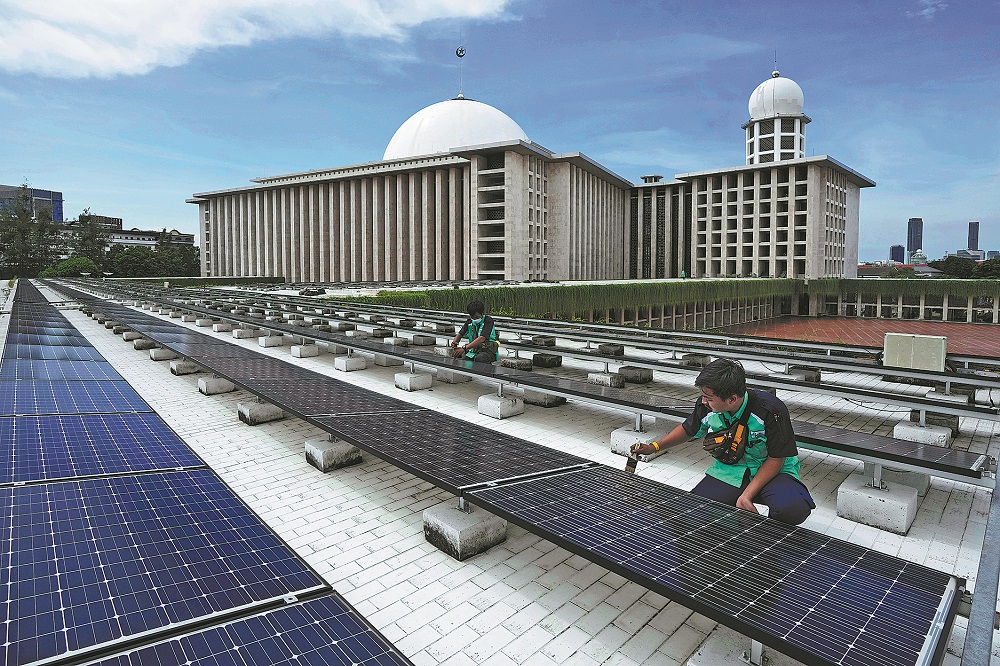Green paths forward
Environmental strategies of developed economies not applicable to all countries, says Indonesian government


Indonesian President Joko Widodo said during his remarks on Sept 5 that Indonesia had over 3,600 GW of renewable energy potential and 3.3 million hectares of mangroves that could absorb up to 12 times the amount of carbon dioxide absorbed by tropical rainforests.
He said none of this would yield much if developed countries "don't have the courage to make investments, share their technology and provide affordable financing for developing countries".
Putra Adhiguna, managing director at the Energy Shift Institute, said that the government should focus on expanding renewable energy capacity and improving inter-island interconnections because electricity demand in Indonesia will continue to increase.
During the IISF, Indonesian state-owned electricity group Perusahaan Listrik Negara through two of its subsidiaries and Saudi utility developer ACWA Power signed a hydrogen purchase agreement with state-owned fertilizer company Pupuk Indonesia.
Last year, the companies signed an agreement to develop the largest green hydrogen facility of its kind, powered by 600 megawatts of solar and wind power, which is expected to start commercial operations in 2026. The project will enable 150,000 metric tons of green ammonia production annually.
Institute for Essential Services Reform Executive Director Fabby Tumiwa, however, cautioned that despite the many hydrogen developments in Indonesia, the government is planning for most of it to be exported.
He said that the country has yet to see an upward trend of hydrogen use domestically.
State-owned oil and gas company Pertamina also signed an agreement to jointly study the potential development of carbon capture and storage with partners, including Pupuk Indonesia and South Korean steel giant POSCO, at the IISF in September.
Rachmat Kaimuddin, undersecretary for transportation and infrastructure at the Office of the Coordinating Ministry for Maritime and Investment Affairs, reiterated during the IISF the country's commitment to fighting pollution in its cities, especially Jakarta.
Rachmat said the government hoped it could soon introduce "much cleaner" gasoline in the first quarter next year and biodiesel before the end of this year.
He acknowledged that Indonesia had been lagging behind on determining emissions standards for its coal plants but he gave an assurance that the government was working to improve its capability in this area.
THE JAKARTA POST, INDONESIA


















